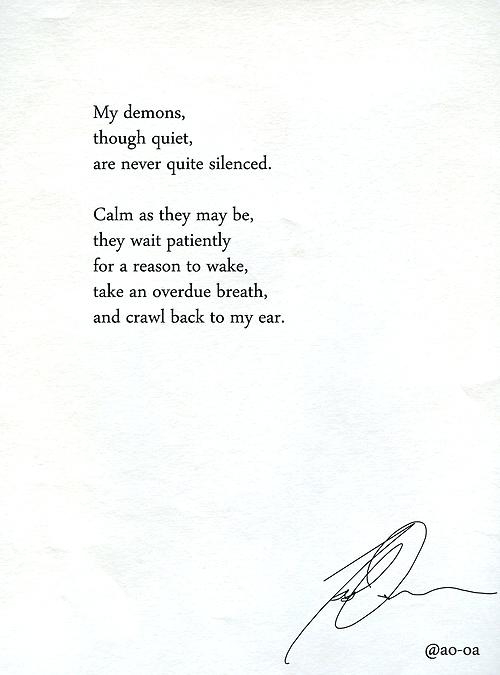Are you strong enough to write to your own fears? If so how do you know? The answer often lies in the very first few words you write in your story.
I’m not afraid to die. Not by losing myself in my hatred for my ex-boyfriend. Not by the sonic waves of the Swarm that can blow me apart in a split second…like they did for so many of my teammates. For my friends.
But I am afraid of surviving in this wasteland alongside my last remaining teammate, a guy named Josiah Knect, who doesn’t seem like he’ll ever give in and admit that the world we know is really gone.
– Rayland Mark Calderón, The Swarm and the Flyer
For Rayland, the protagonist of my first ever post-apocalyptic story, it’s important that he give the impression that he’s not afraid to die physically. But in reality, his words in the opening chapter make one thing crystal clear: he’s scared shitless of surviving another day where his unrequited love remains just that: unrequited. What the reader can deduce next helps to, I hope, lend to Rayland’s depth as a character. That deduction is that Rayland fears so much more than he initially lets on:
- Not finding romantic love
- Feeling undeserving of anyone else’s love
- Losing his sense of purpose
- Feeling trapped and alone
If you want your characters to truly come alive, you’ll have to do a deep dive like I just did and figure out the root fear. You have to tap into their heart of darkness — and yours, too.

Photo by Pixabay on Pexels.com
Fear knows many forms. Most we face pertain to our self-view: feeling inferior, lost, powerless to change the course of our day. Then there are the more primal horrors, those that revolve around our very survival: hunger, homelessness, fleeing genocide, contemplating suicide. Some would argue that to write about these topics would almost certainly derail any novel or story and send it into the “This is too grim for relaxed reading” realm. I’m here to posit that the opposite is true: More mainstream fiction needs to incorporate loss and the harsh realities of life.

Too often demons are given short shrift. Authors find no comfort in digging into what plagues their heart — and their writing suffers as a result. That’s not to say that there should be no boundaries when it comes to writing about the macabre. Or that happy endings aren’t warranted. However, without death or evil on the path to that ending, there is nothing to be gained. Readers will feel no joy or catharsis if you don’t hold their head underwater for at least a little while.
Robert Cormier was an author who knew how to tap into what unsettles us. He is most famously known for his book, The Chocolate War. Cormier is one of my favorite authors, and that is because he, among other things, never shied away from the underbelly of humanity. Cormier’s themes are intricately woven with just as many threads of youthful hope, justice, and forgiveness as they are of rape, murder, and psychopathy.

Retrieved from https://www.ecoledesloisirs.fr/auteur/robert-cormier
‘So,’ you may be thinking, ‘what can digging into the dark side of life do for me as a writer?’ The short answer is: make your stories come alive. You are a living being who’s hit so many highs and lows. I speak to you directly because you deserve to find your own voice and share your pain in your own way — when and if you decide you’re ready, of course. That’s why I invite you to write to what you know. Not necessarily what you’re comfortable with, but what you’ve experienced, endured, and been shaped by.
For me, I’m writing The Swarm and the Flyer and its sequel, The Wrath and the Base, to let my grief speak out. Losing my dad, being cheated on by my ex, saying goodbye to a teammate who died by suicide, all of these very real events feed into both stories. They compel both Rayland Mark Calderón and his last living friend, Josiah Knect, to fight off the Swarm and search for other survivors, their families, and each other. My real losses become their metaphorical monsters. You are fully capable of crafting your own story and airing your own wounds, too. Just take one step out of your comfort zone, then another, and another…
Remember, you have the power to impact yourself just as much as your readers. Take some time to unpack your own skeletons. Walk up to the looming figure of death and destruction as you know it. Peel back that veil and remember that you are not alone. Your readers and characters are with you, if only a few steps behind you.

I wish I could write like this, but I am afraid to look in myself and discover what kind of person I actually am.
LikeLike
Probably not, thank-you,
Thank you for reading my post!
LikeLiked by 1 person